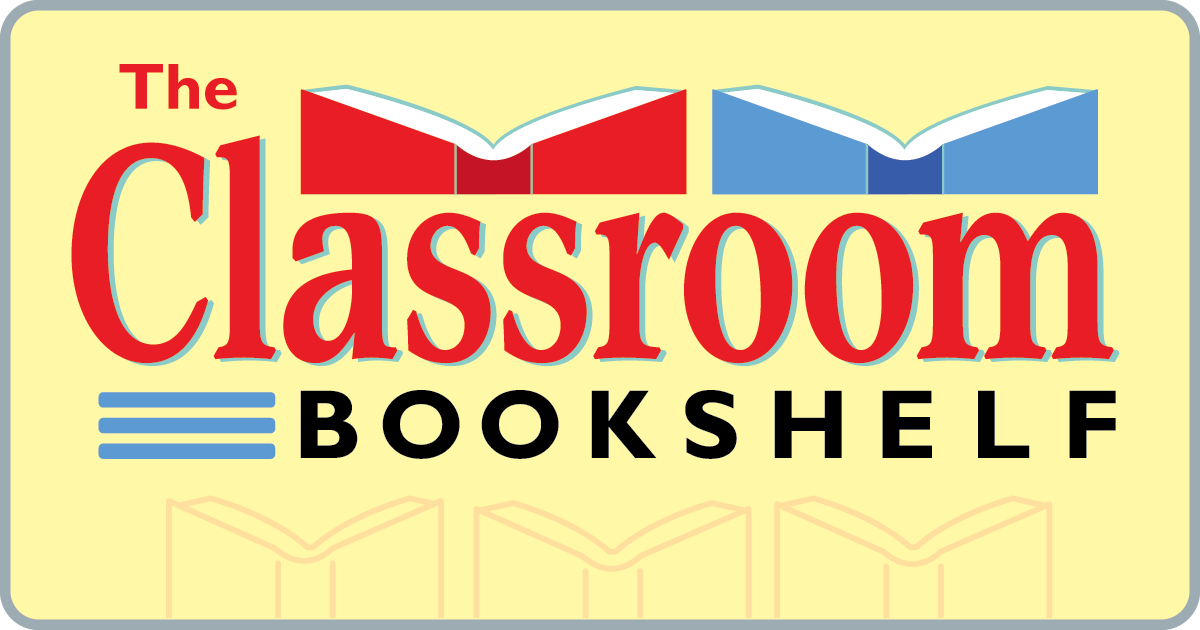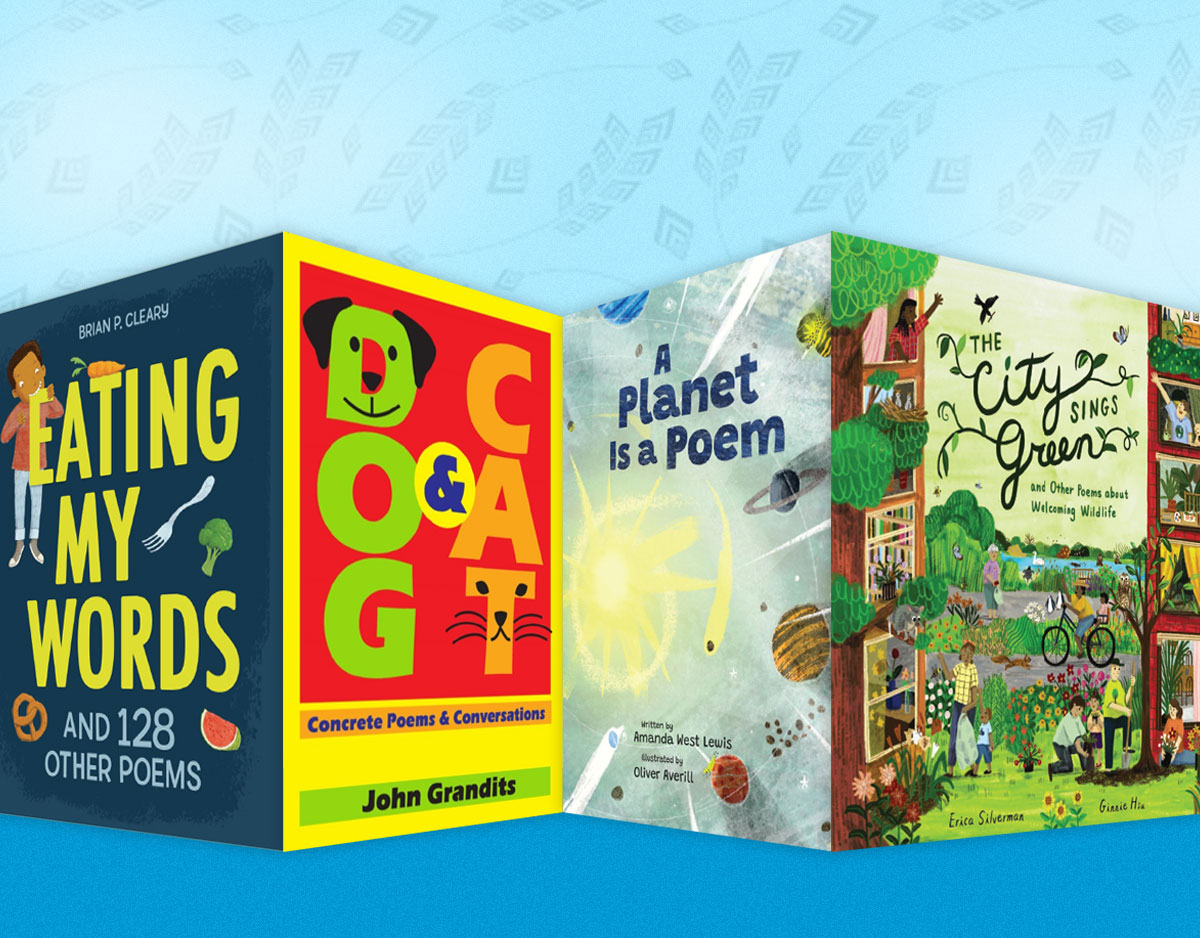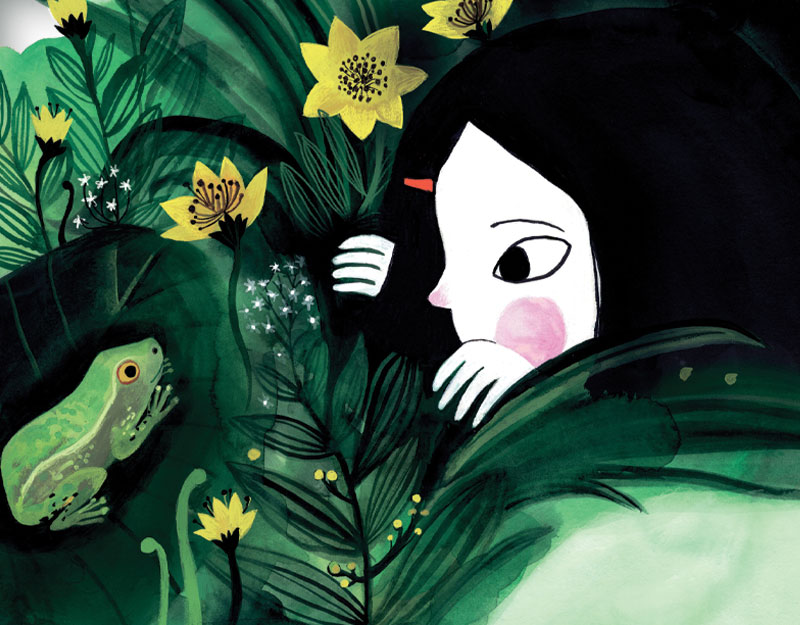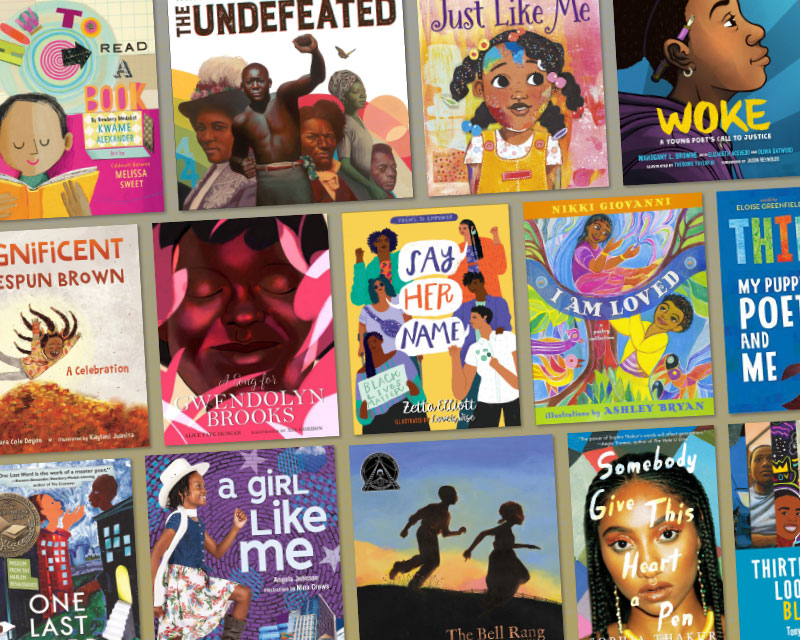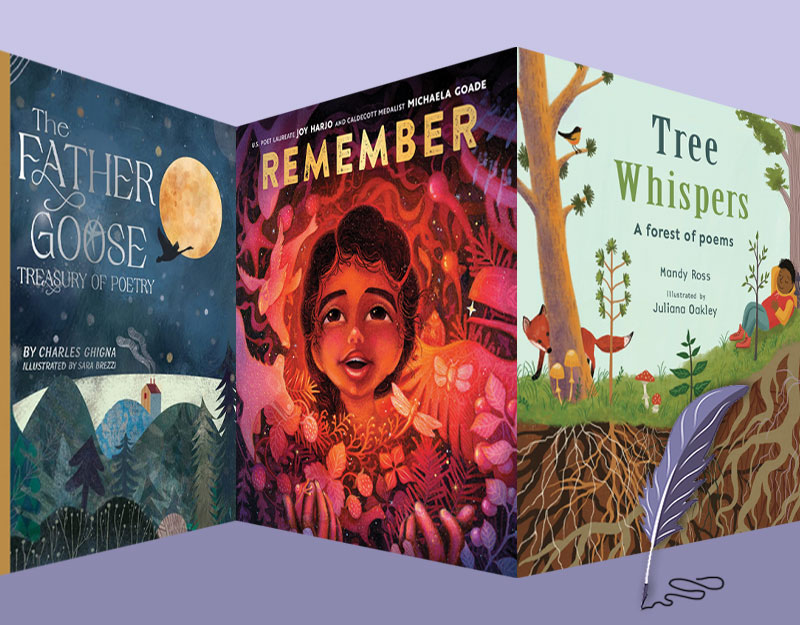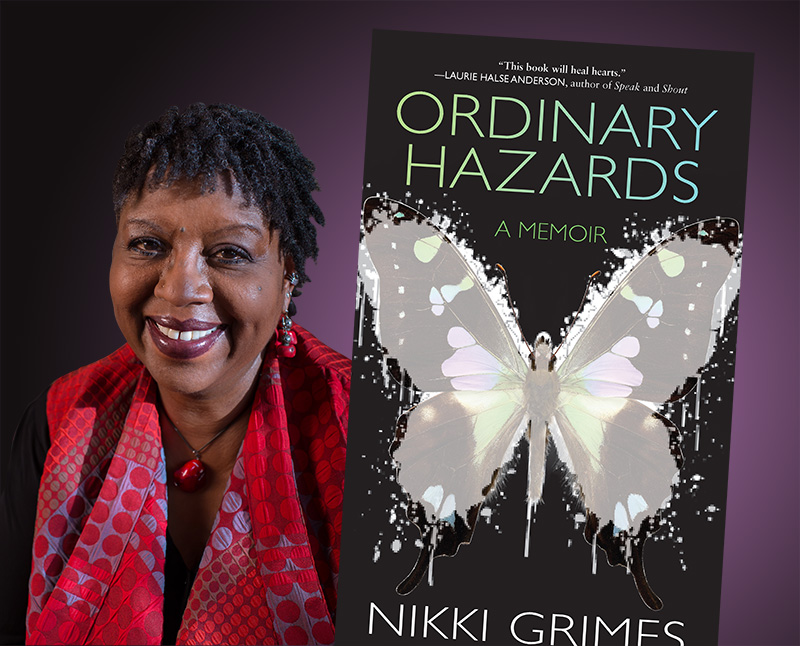Lowriders in Space
Lowriders in Space
Written by Cathy Camper; Illustrated by Raúl the Third
Published by Chronicle Books, 2014
ISBN# 978-1-4521-2869-6
Grades 3 and up
Book Review
Bajito y suavecito: low and slow. That’s how expert car mechanics Lupe Impala, Elirio Malaria, and El Chavo Flapjack like their cars, and a lowrider is exactly the kind of car they hope will help them achieve their dream of opening their own shop. From author Cathy Camper and illustrator Raúl the Third, Lowriders in Space is an original, energetic, and dazzling graphic novel that fuses science fiction and animal realism to follow the lowriding trio’s adventures and efforts. Using spare rocket parts, they outfit a jalopy that literally thrusts them out of this world. Once in outer space, they take advantage of the cosmos to stylize their car in truly stellar fashion. But is it enough to win the Universal Car Competition and its grand prize of “a carload of cash”? Fluidly blending Spanish and English, science factoid and everyday slang, Camper’s vibrant text echoes the dynamic hybrid culture of lowriding. Meanwhile, Raúl the Third’s spectacular black, blue, and red ballpoint pen illustrations reflect the intricate sketches and doodles that the book’s target audience might be drawing themselves. Appendices provide a glossary of terms that are also footnoted throughout the text, as well as information about the evolution of lowriding from its Southern Californian beginnings after WWII. Particularly appealing for book clubs and independent reading, Lowriders in Space is a wild and thrilling ride for sure. With its focus on Chicano culture, cosmic creativity, and even female mechanics, ¡hay mucho que celebrar!
Lowriding Culture. Lowriding is much more than a recreational activity, as an entire subculture surrounds it, dating back to the 1950s. Survey your students to find out what they already know about lowriding. If your students are familiar with lowriding culture, position them as experts to teach the class about it. To introduce students to lowriding culture, or to supplement what classmates teach them, share some of the articles listed in the Further Explorations section below. What did they learn that matched or challenged their prior knowledge? More specifically, what stereotypes were dispelled after taking the time to learn more about it? Additionally, have students compare and contrast lowriding culture with other subcultures—such as skater culture, gaming culture, or hip hop—including those in their own communities.
ADVERTISEMENT
ADVERTISEMENT
Car Characteristics and Design. The announcement for the Universal Car Competition lists a variety of cars that are eligible to compete. What distinguishes each car from the other? Specifically, what characteristics does each car have (e.g., engine, tires, seats, body, transmission, etc.)? Have students research the different types of cars listed on the announcement, as well as other types they might want to add, and present their research in a slide show or other multimedia presentation. To extend this activity, encourage students to design their own cars based on their research to “enter” into the Universal Car Competition. Have the class or another one vote on the winner.
Performing Low Riding Rhythm, Music, and Lyrics. Share the lyrics and listen to the original song “Low Rider,” by the band War, and some of various covers of the song by different artists, such as Phish, Blues Traveler, Barry White, and George Clinton (click here for a list of cover versions). As a whole class or in small groups, have students come up with additional lyrics to the song, based on Lowriders in Space and what they know about lowriding culture. Stage a performance of the song with new lyrics for all to enjoy.
Creative Refurbishing. Part of the appeal of lowriding is the creativity involved in improving, detailing, personalizing cars. Lupe, Elirio, and Flapjack certainly take all of those steps to a new level when they soup up their car with cosmic parts. Challenge your students to creatively think of ways they might refurbish an ordinary vehicle or appliance. They could follow the book characters’ example and use items from outer space, or they could borrow items from other unique locations, such as the ocean, the desert, or the forest.
Learning More about Astronomy. As the lowriding trio travel through space, they use their knowledge about the planets, stars, solar system, and other celestial objects to gather parts for their car. Divide students into groups to inquire further about any of those cosmic entities, using the information in Lowriders in Space as a starting point. Have students present their findings in a multimedia presentation.
STEM Studies. What actually makes lowriders “hip and hop, dip and drop”? What indeed would happen if rocket parts were used on cars? Which ones would realistically work? Would some of the substances found on or near the planets that the lowriders visit really work in cars? Invite students to inquire into any of these questions, in small groups or a whole class inquiry, folding in concepts about physics, engineering, and astronomy.
Mixing Languages to Strengthen Voice. Voice is one of the most difficult writing traits for students to grasp and for teachers to teach. Voice is the trait that allows readers to develop a full sense of who is speaking the words on the page, whether it is a narrator, fictionalized character, or the author himself/herself. Lowriders in Space does a great job of illustrating exactly what voice is, as we read and hear the character’s everyday talk as a blend of Spanish and English. Engage your students in a study of how Cathy Camper does this. What words or phrases does she choose to help readers “hear” the characters’ distinct voices as lowrider enthusiasts? To further demonstrate the quality of voice, do a reader’s theater activity with excerpts from the novel so students can really hear what Camper is doing in her writing. Then, have students experiment with voice by perhaps writing about the same topic in different voices, including mixing in words from different languages.
ADVERTISEMENT
ADVERTISEMENT
Hybrid Genre Exploration. Lowriders in Space fuses elements of adventure, animal realism, and science fiction into a graphic novel format. Have students identify the distinct characteristics of each genre, noting archetypes and essential elements of plot, setting, and format. Then have students analyze how Lowriders in Space blends these genres. Referring to some of the links and tools listed below in Further Explorations, invite students to create their own graphic novels that merge various genres into a single story.
Everyday School Supplies as Artistic Tools. In the illustrator notes at the end of the book, Raúl the Third explains that when he was a child, he used everyday black, red, and blue ballpoint pens to draw because he didn’t have and “didn’t need ‘professional tools.’” Encourage your students to create works of art using only everyday school supplies instead of tools specifically made for art. Display their artwork in the classroom, in the hallway, or on a class website, along with illustrator notes written by the student-artist that explains their thought processes while creating their art.
The Great Graphic Novel Debate. Graphic novels continue to be a source of controversy in English language arts classrooms. Critics believe that graphic novels are just glorified comics and detract from real literacy learning. Proponents of including graphic novels in literacy curricula maintain that they contain complex plots, characters, and narrative structures; appeal to both reluctant and advanced readers; and can be useful as scaffolds to other literary genres. Have students research the grounds for each side’s argument. You may want to direct them to the online articles listed in the Further Explorations section below. Then, set up a forum for students to debate the issue. If your class unanimously supports the use of graphic novels in literacy curricula, engage them in a class project—such as a letter to the local newspaper, or a presentation before the school board—where they can authentically and productively express their argument and hope for educational reform.
Further Explorations
Online Resources
Cathy Camper’s website
http://cathycamper.com
http://www.Raúlthethird.com
Websites and articles about lowriding culture
http://wheels.blogs.nytimes.com/2012/12/04/lowriding-this-culture-is-about-more-than-cars/?_r=0
http://www.historyaccess.com/historyoflowride.html
http://motherboard.vice.com/blog/lowriders
http://www.businessinsider.com/nathanael-turners-photos-of-the-los-angeles-lowrider-convention-photos-2014-4
http://people.ucsc.edu/~pmmckerc/lowrdr.html
http://edition.cnn.com/videos/world/2014/12/10/pkg-darlington-low-riders-in-brazil.cnn
Eek! Comics in the Classroom!—article in Education World
http://www.education-world.com/a_curr/profdev/profdev105.shtml
Can the X-Men Make You Smarter?—article in Parents’ Choice
http://www.parents-choice.org/article.cfm?art_id=140&the_page=reading_list
Graphic Novels for Multiple Literacies—article in Reading Online
http://www.readingonline.org/newliteracies/lit_index.asp?HREF=/newliteracies/jaal/11-02_column
ReadWriteThink’s Comic Creator
http://www.readwritethink.org/files/resources/interactives/comic
Comics in the Classroom – A Site for Teachers, Parents, and Librarians
http://comicsintheclassroom.net
Museum of Comic and Cartoon Art
http://www.moccany.org
Books
Bee, W. (2013). And the cars go… Somerville, MA: Candlewick Press.
Hammond, R. (2008). Car science. New York: DK Publishing.
Lewis, J. P., & Florian, D. (2014). Poem-mobiles: Crazy car poems. New York: Schwartz & Wade.
Paulsen, G. (2006). The car. HMH Books for Young Readers.
Van Dusen, C. (2007). If I built a car. New York: Puffin.
Filed under: Comics & Graphic Novels
About Grace Enriquez
Grace is an associate professor of language and literacy at Lesley University. A former English Language Arts teacher, reading specialist, and literacy consultant, she teaches and writes about children’s literature, critical literacies, and literacies and embodiment. Grace is co-author of The Reading Turn-Around and co-editor of Literacies, Learning, and the Body.
ADVERTISEMENT
ADVERTISEMENT
SLJ Blog Network
The Moral Dilemma of THE MONSTER AT THE END OF THIS BOOK
Cover Reveal and Q&A: The One and Only Googoosh with Azadeh Westergaard
Winnie-The-Pooh | Review
Parsing Religion in Public Schools
ADVERTISEMENT

